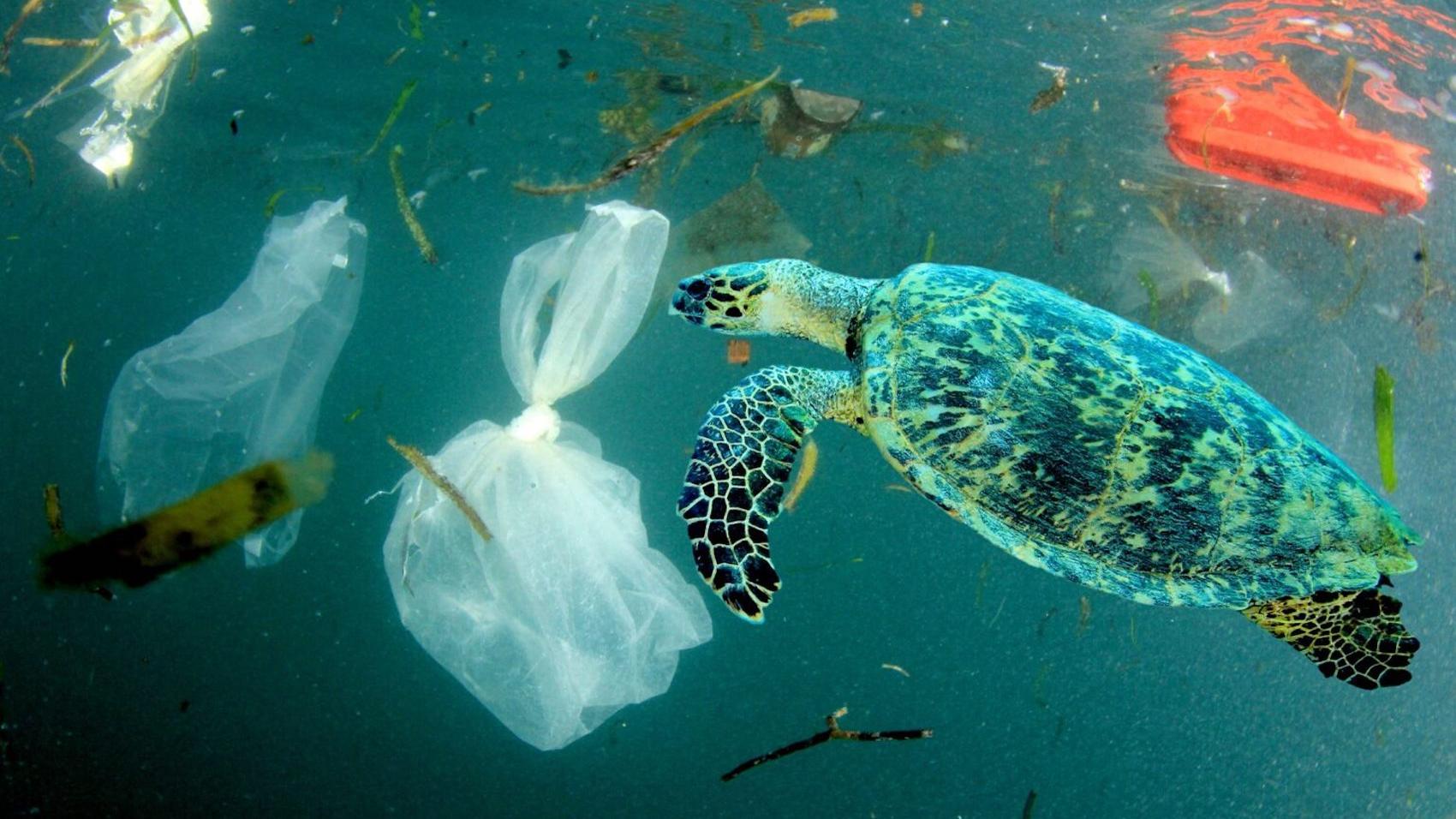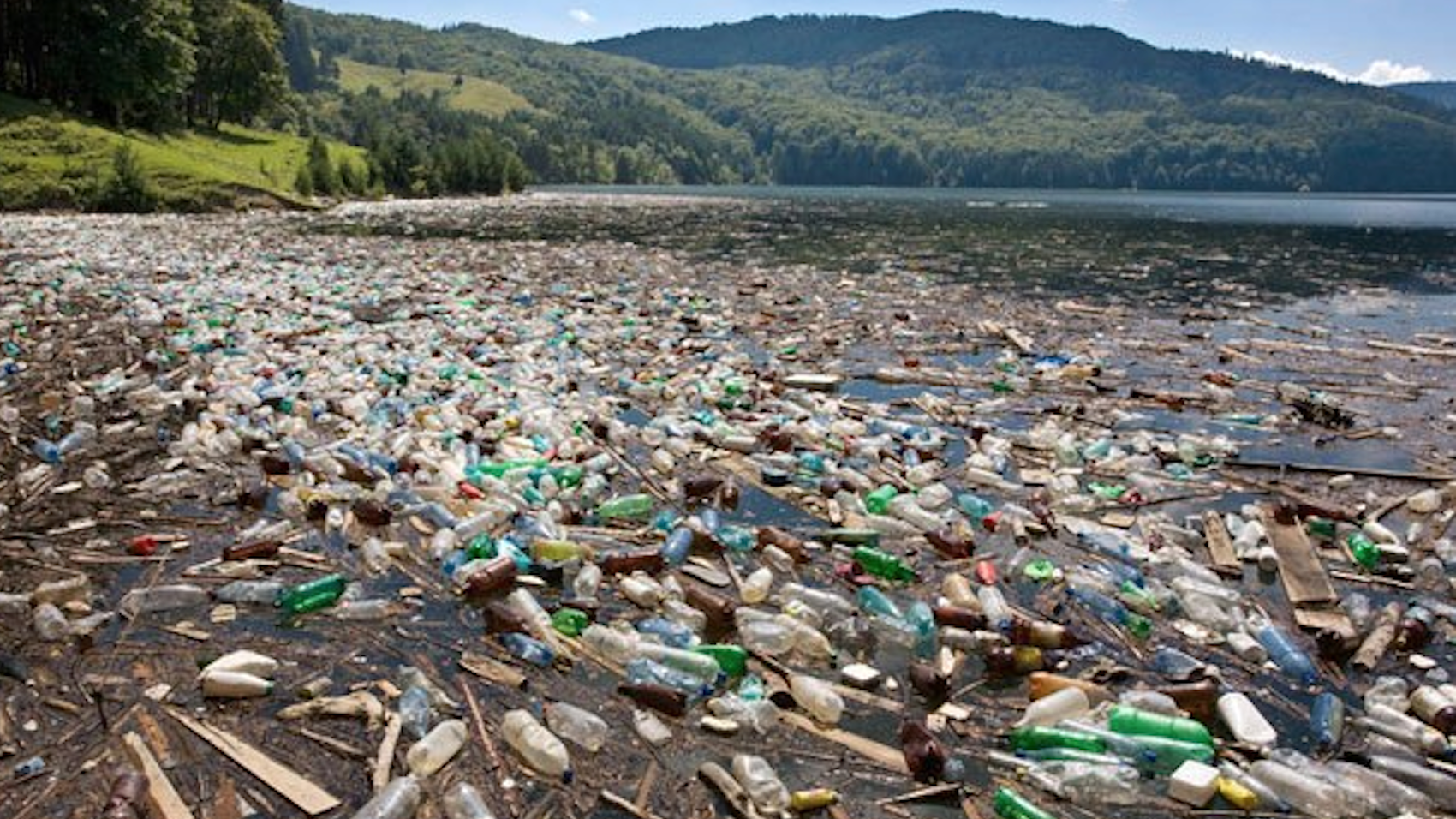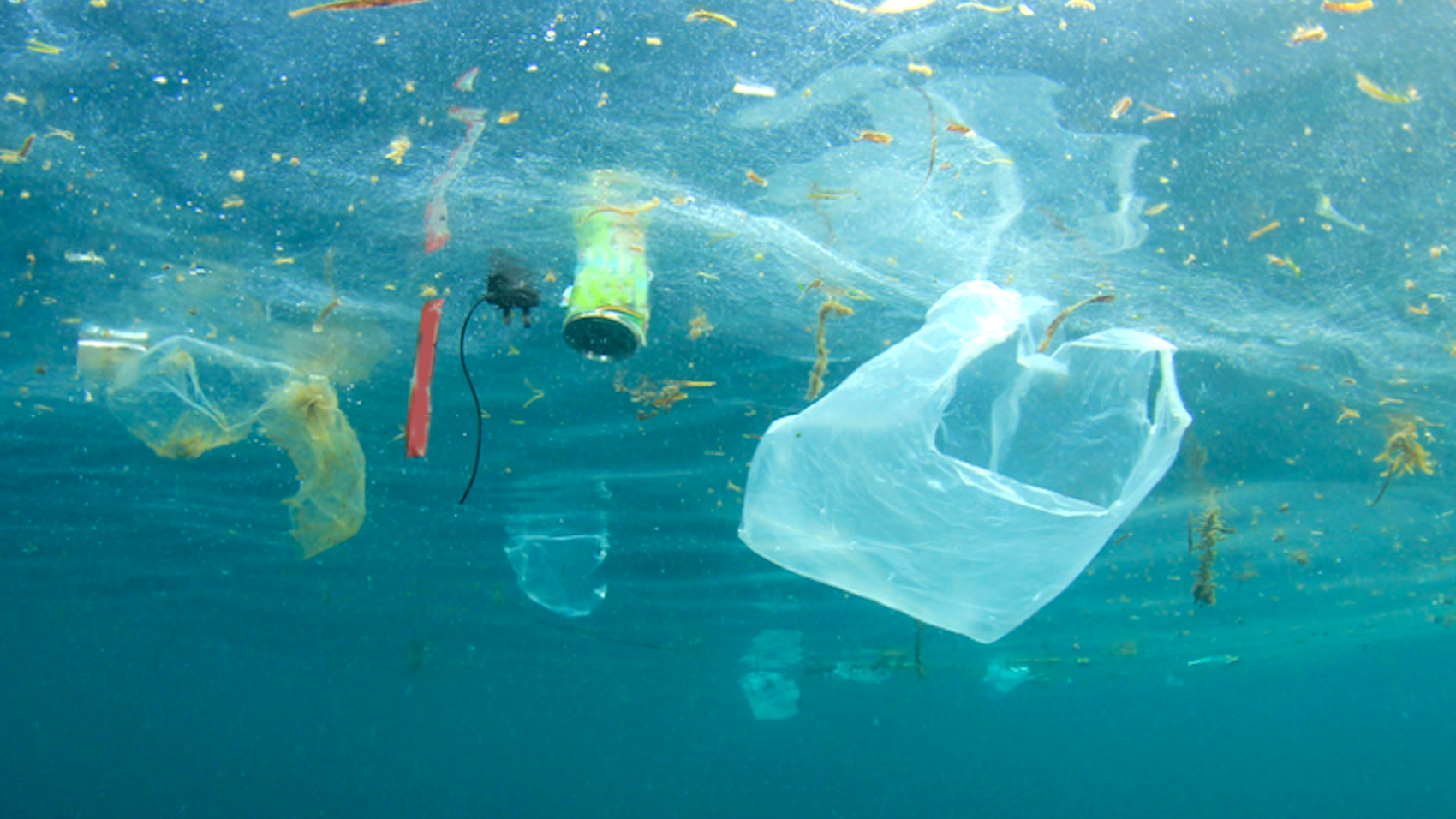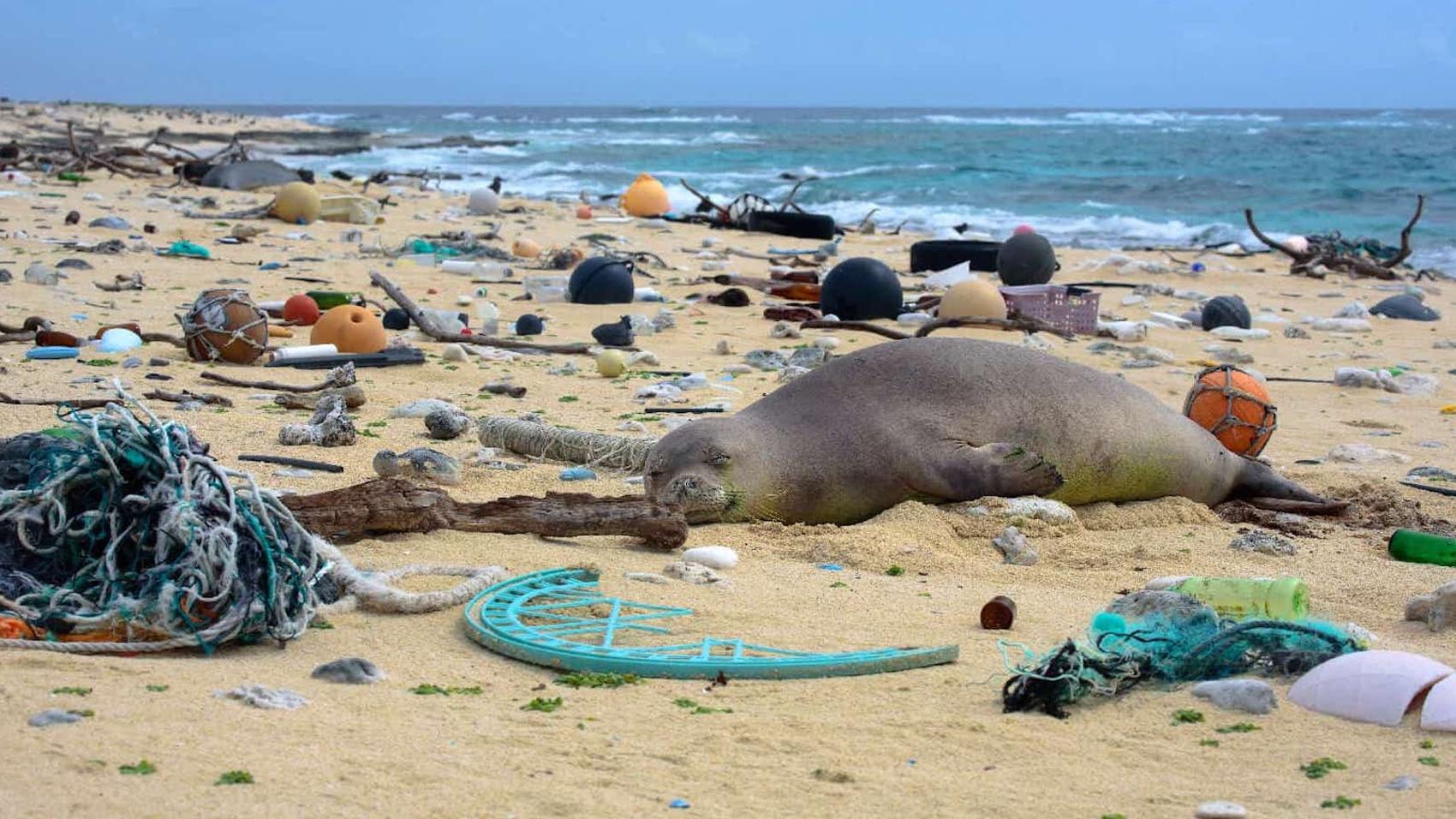A supermarket in Amsterdam has just announced the world’s first plastic-free aisle, with packaging made from alternative materials. Is this the way forward for saving our seas from plastic pollution? At the Ocean Plastics Crisis Summit in London, experts joined forces to discuss the problem, and find solutions to the impending plastic planet. Lush Times writer Katie Dancey-Downs reports.

Our plastic ocean
Standing on a beach in Kenya, BBC environment analyst Roger Harrabin releases a turtle into the sea. For the last three weeks, the turtle has been fed laxatives to clear the huge amount of plastic from its stomach, eaten by mistake in its ocean home. As Roger leaves the beach, he turns back to take one last look. Stood in the very spot where the turtle was released, is a child drinking from a plastic bottle. Taking a final swig, the boy throws the bottle over his shoulder, onto the beach beneath his feet.
As Roger tells this story at the Ocean Plastics Crisis Summit, he is clearly exasperated. However, he also has a message of hope. In his 30 years as a BBC journalist, he has never seen so much public support for an issue.
Collected together at the Royal Geographic Society in London, speakers take to the stage in a bid to find solutions to the damage being caused to the oceans by humans, in the form of plastic pollution. The event is hosted by Artists Project Earth, an organisation bringing the power of music and the arts to 21st century environmental challenges.
Opening the Summit, social and human rights advocate and former actress Bianca Jagger outlines the severity of the problem: “The largest habitat on Earth has in the space of a century become a plastic graveyard.”

Plastic appears to be infiltrating every aspect of marine life. At the current rate, it is predicted that the ocean will contain more plastics than fish by 2050, according to the Ellen Macarthur Foundation. These plastic items start life on land, and make their way into the ocean through improper collection and recycling.
Seabirds are also being affected, found dead with stomachs jammed full of items like bottle caps, printer ink cartridges, and golf balls. They can no longer eat, because their stomachs are already full.
Of even greater concern than these larger plastic items, are microplastics. Items entering the sea as plastic bags, fishing nets, and other waste packaging products are broken down by the sun, and become tiny plastic particles, known as microplastics. They are too small to fish out of the ocean.
Microplastics are then ingested by plankton, those organisms which are right at the bottom of the food chain. As larger fish and marine animals eat the plankton, they are also eating the plastic. When humans eat fish, they too eat the plastic.
“Every package that’s made should be recycled. There’s no excuse for making packages that are not recyclable”Professor Ed Kosior, Nextek
Ocean plastics are already illegal
According to UK environmental journalist, campaigner and author, Oliver Tickell, we already have all the global legislation that we need to tackle the problem. When countries allow plastic to pollute the ocean, it is a clear violation of international law.
At the Summit, Oliver launched his paper, published by Artists Project Earth, on the issue of holding marine plastic pollution offenders accountable. The legislation may be in place, but he claims it is not being implemented.
Amongst the long list of laws that Oliver highlights as making ocean plastics illegal, is the United Nations Convention on the Law of the Sea. This law, which came into force in 1994, requires states to: “prevent, reduce and control pollution of the marine environment from any source.”
This is just one small example of the numerous hard and soft laws Oliver Tickell outlines in his report. He says that if we were starting this process from scratch, it could be a 20 year battle to get international law against plastic pollution in place.
“That’s something we don’t have to do. We have this wonderful 20 year head start, because we already have all these international agreements in place,” he says.
While policing these laws can prove difficult, citizens can still pile on the pressure, and demand that governments respect their legal obligations.
“We must remind governments of what they’re signed up to,” Oliver says.

Plastic pollution solutions
The speakers at the Ocean Plastics Crisis Summit are in clear agreement: the solution to the plastic pollution problem is not to clean up the ocean. It is to stop plastic from entering the ocean in the first place.
To do this, as Bianca Jagger outlines, there are some key steps. Firstly, the world must turn its back on single use plastics. When we do use plastic, it needs to be reused instead of being thrown away, and we need better recycling initiatives. There must also be a focus on developing countries with high levels of waste, which need better collection systems, and incentives to increase in the value of plastic waste.
There are a number of practical solutions, which the speakers propose. To begin with, more countries could implement plastic bottle deposit schemes, as seen in a small number of countries. For example, consumers in Norway pay a deposit for plastic bottles, which is refunded once they return their empty bottles to a machine. A scheme like this could soon be heading for Scotland, with Zero Waste Scotland currently helping the Government bring this idea to life.
At the heart of the issue for many, is the design stage of products. How can plastic products, be it packaging or other items, be designed to reduce the impact on the environment?
“Every package that’s made should be recycled. There’s no excuse for making packages that are not recyclable,” says Professor Ed Kosior, managing director of Nextek, an organisation working on plastic recycling solutions.

Willemijn Peeters, director of Searious Business, wants to see more brand owners becoming leaders of change, and so Searious Business has developed the ‘Plastic Scan.’ This online tool helps companies assess their plastic usage and recommends potential improvements. Not knowing what to do, or where to start, is no longer an excuse.
Turning the tide
“When future archaeologists look at the remnants of the 20th and 21st Century, what will they find? We are indeed living on a plastic planet,” says Peter Maddox, director of the Waste and Resources Action Programme (WRAP), as he talks at the Ocean Plastics Crisis Summit.
The cheapness, durability, and versatility of plastic are what initially made it so attractive. Now, it’s what we hate about it, he says. “We’ve come a long way, but we have a huge amount to do.”
The Ocean Plastics Crisis Summit brought possible solutions to the table, but the discussions will not stop there. Following the event, a team is being formed, tasked with creating an ocean plastics action manifesto. Among the team are scientists, academics, sustainability experts, journalists, and grassroots campaigners. The coalition is getting ready to make a list of policy, technology, and local action recommendations.
This is a group of people who not only have the right expertise, but who are also passionate about the health of the planet. As we await the group’s manifesto, the only question remaining is whether the world’s leaders will listen.





